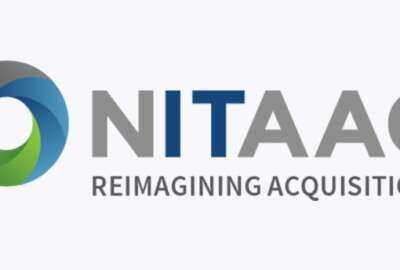Frustrations over NITAAC’s $50B CIO-SP4 GWAC boiling over
Industry experts are calling on NITAAC to rescind the solicitation and address several inconsistencies.
All of the confusion and consternation over the solicitation for the CIO-SP4 IT services governmentwide acquisition contract finally has boiled over. Five companies filed pre-award protests with the Government Accountability Office after the National Institutes of Health Acquisition and Assessment Center (NITAAC) failed to clarify several questions about its request for proposals.
On July 2, NITAAC extended the due date for proposals to July 23 and refined some of the requirements around past performance requirements. But industry experts said while the amendments and longer lead time helps, there still are too many problems with the $50 billion, 10-year GWAC vehicle.
“Looking at this opportunity that potentially has thousands of bidders, it’s not surprising that there are protests. There is a lot of interest but also a lot of confusion caused by the solicitation documents,” said Stephanie Kostro, the executive vice president of policy for the Professional Services Council. “Generally speaking, industry was excited about NITAAC’s innovative approach. After they released the draft RFP in spring 2020, PSC sent a letter to NITAAC saying we appreciate the draft but please ensure there are no surprises in final RFP. When the final RFP came out in May 2021, it contained several surprises, and when the questions and answers came out, NITAAC lumped some of the questions together and inferred intent behind question instead of answering the questions as written. That caused confusion because some of the questions were not answered or NITAAC misinterpreted the intent of the question or caused confusion in industry about what NITAAC was getting at. This is a massive governmentwide vehicle, you can’t pull punches or have any surprises. NITAAC could have avoided some of these surprises like with the inconsistencies in the RFP.”
The five companies who submitted protests to GAO on July 1 and July 2 said the solicitation is overly restrictive. GAO has 100 days or until Oct. 11-12 to make a decision on the protests.
2TechJV, Sara Software Systems, Mahani Technical Services, GPSITek JV and Amaxiam said NITAAC’s decision to change the requirements for past performance through the Small Business Administration’s Mentor-Protégé program doesn’t follow the regulations and doesn’t give the companies enough time to meet the new requirements and submit a proposal.
NITACC acting director Brian Goodger told Federal News Network last week that the organization can’t comment on an open solicitation.
Protests were the only option
Cy Alba, a partner with the law firm Piliero-Mazza, represents four of the protestors and has heard from several other clients who are unhappy with NITAAC’s changes.
“Unfortunately the rules are set up in such a way that if there is a discrepancy or inconsistency in the solicitation, you have to protest before the bids are due otherwise you waved your rights later,” Alba said. “That is a driver to this. It’s not because you want to be aggressive, but some of it is just NITAAC put all the terms in the RFP and amended things but they didn’t do it consistently. The Q&A wasn’t consistent either. If you guess on what NITAAC means and you are wrong, you may lose out on your bid.”
Alba said that means, for example, if NITAAC refers to section J6 to answer questions but they really meant section J7, that puts the contractor in a tough spot because the agency could disqualify them for using J7 instead of J6 even though all signs pointed to J7 as being the correct section.
At the heart of the matter for most of the protestors is the SBA Mentor-Protégé program and the change NITAAC made that said if the mentor was a large business, the small business protégé couldn’t use more than one example of past performance from the relationship.
PSC’s Kostro said this would mean companies would have to get 39 new pieces of information from their government client approved in a matter of weeks before the proposal deadline.
“That can take a long time,” she said. “We highlighted that issue in our letter last week.”
Time to rescind the solicitation?
Another big issue that NITAAC failed to clarify is around past performance for multiple award indefinite delivery/indefinite quality (IDIQ) type contracts versus single award IDIQ contracts.
“In the Q&A, NITAAC answered the question around multiple award IDIQ, saying all obligated dollars should be used as one reference. But for single award IDIQ contracts, NITAAC was silent,” Alba said. “It seems like attempts to ask questions about this issue were not answered.”
Alba, PSC’s Kostro and other industry experts said NITAAC should rescind the CIO-SP4 solicitation, fix the problems and reissue it. They said it may delay the final award, but it would be worth it in the end.
One industry source said the entire experience around CIO-SP4 has been disappointing, to say the least.
“The fits and starts surrounding the conduct of the CIO-SP4 procurement reflect NITAAC’s failure to effectively engage industry and customers on the requirements and structure of the solicitation,” said an industry expert, who requested anonymity. “Too often, NITAAC’s engagement has been little more than a check the box exercise. We are now seeing the result with the first set of protests against the solicitation terms. Unless NITAAC ups its game, we will likely see protests throughout the course of the procurement.”
PSC’s Kostro said if NITAAC paused CIO-SP4 and took a step back, it would make for a successful acquisition over the long term.
Copyright © 2024 Federal News Network. All rights reserved. This website is not intended for users located within the European Economic Area.
Jason Miller is executive editor of Federal News Network and directs news coverage on the people, policy and programs of the federal government.
Follow @jmillerWFED





